Welt Am Draht is basically what you get if you imagine The Matrix done in 1973, directed by a German auteur director more interested in philosophy than action and made as a two part television movie for a West German television channel.
How can you know the impact of a movie like this, fortyseven years after the fact and with its own remake having come out in the same year as The Matrix, itself already twentyone years old? I’m sure you can guess the core idea of this movie just from me having compared it to The Matrix. And yes, this is a movie about reality as a simulation, and yes that is the big reveal at the middle of it. But that television audience which sat down to watch it that October night in 1973, what would they have made of it? Was this intended to have been a surprise, or something that you were expected to have deduced from the hints the movie dropped, long before the protagonist did?
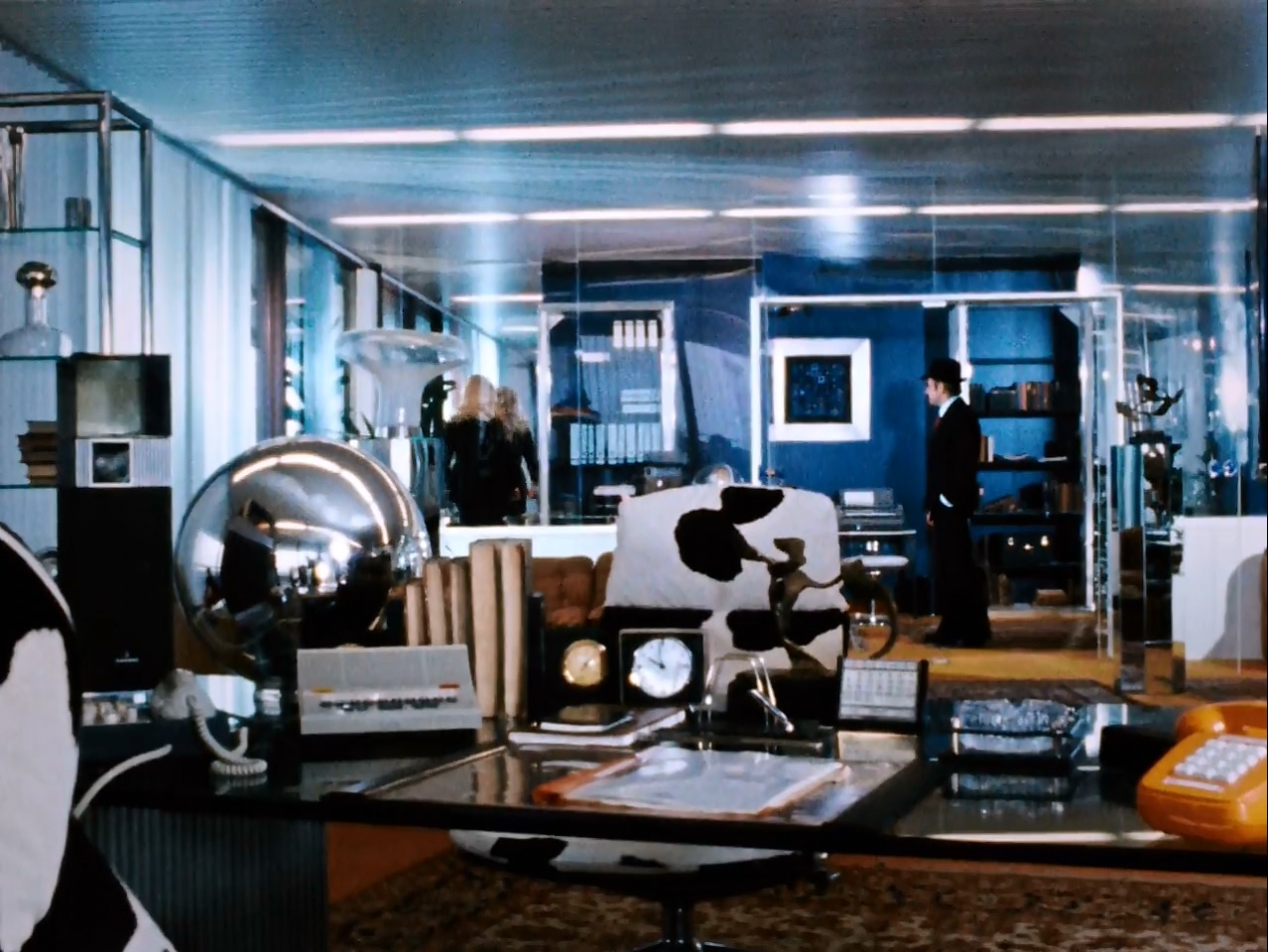
Another thing difficult to judge: the set dressing. This is a gorgeous office, sumptuous in its “seventies retrofuturism” as the Criterion trailer has it. But would you have seen it that way had you watched it in 1973, when all this would be far more the stuff of everyday life, or was this absurd even for 1973? Certainly the outsized ties our protagonist wears wouldn’t have been that ludicrous in their original context as they seem now. In any case throughout the movie I found myself admiring the sets and cinematography as much as I followed the plot. It is all so incredibly lush, so rich. As such it slots in neatly with the seventies science fiction cinema boom of big budget, big sets movies. But unlike some, it has more going for it than that.
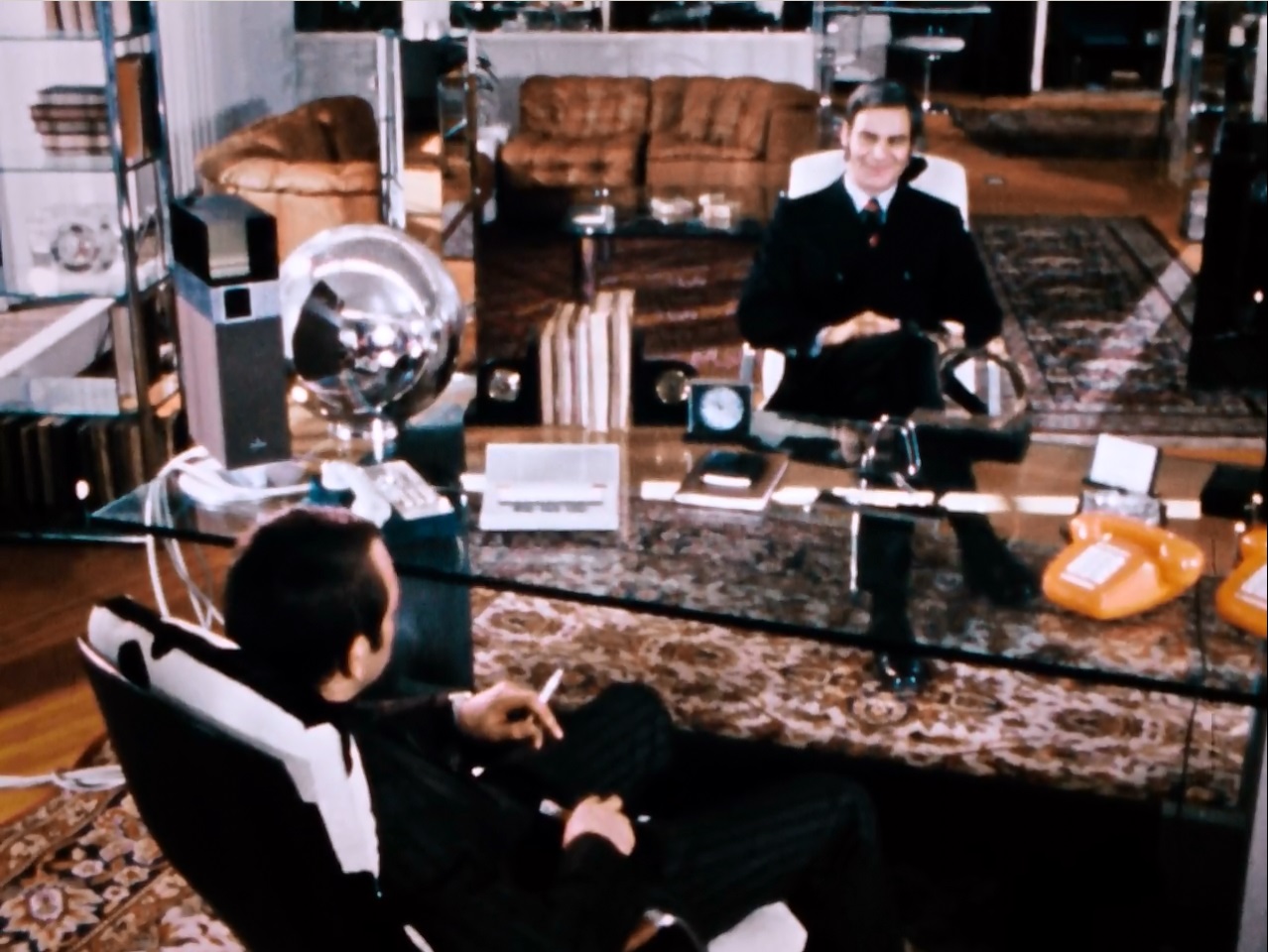
The director, Rainer Werner Fassbinder, was one of the giants of West-German cinema; this is his only science fiction movie. It’s interesting how he manages to avoid the pitfalls of science fiction movie making that so many contemporary movies fell into. Set in the present day, present time, it has no outlandish costuming (those flared ties notwithstanding) nor much easily dated sci-fi gadgetry. It doesn’t waste time and credibility explaining how its central conceit works, but rather focuses on working through its implications. If we’re capable of creating a computer simulation that is so realistic that its inhabitants never suspect that they are living in one, who is to say we ourselves are not living in one too?
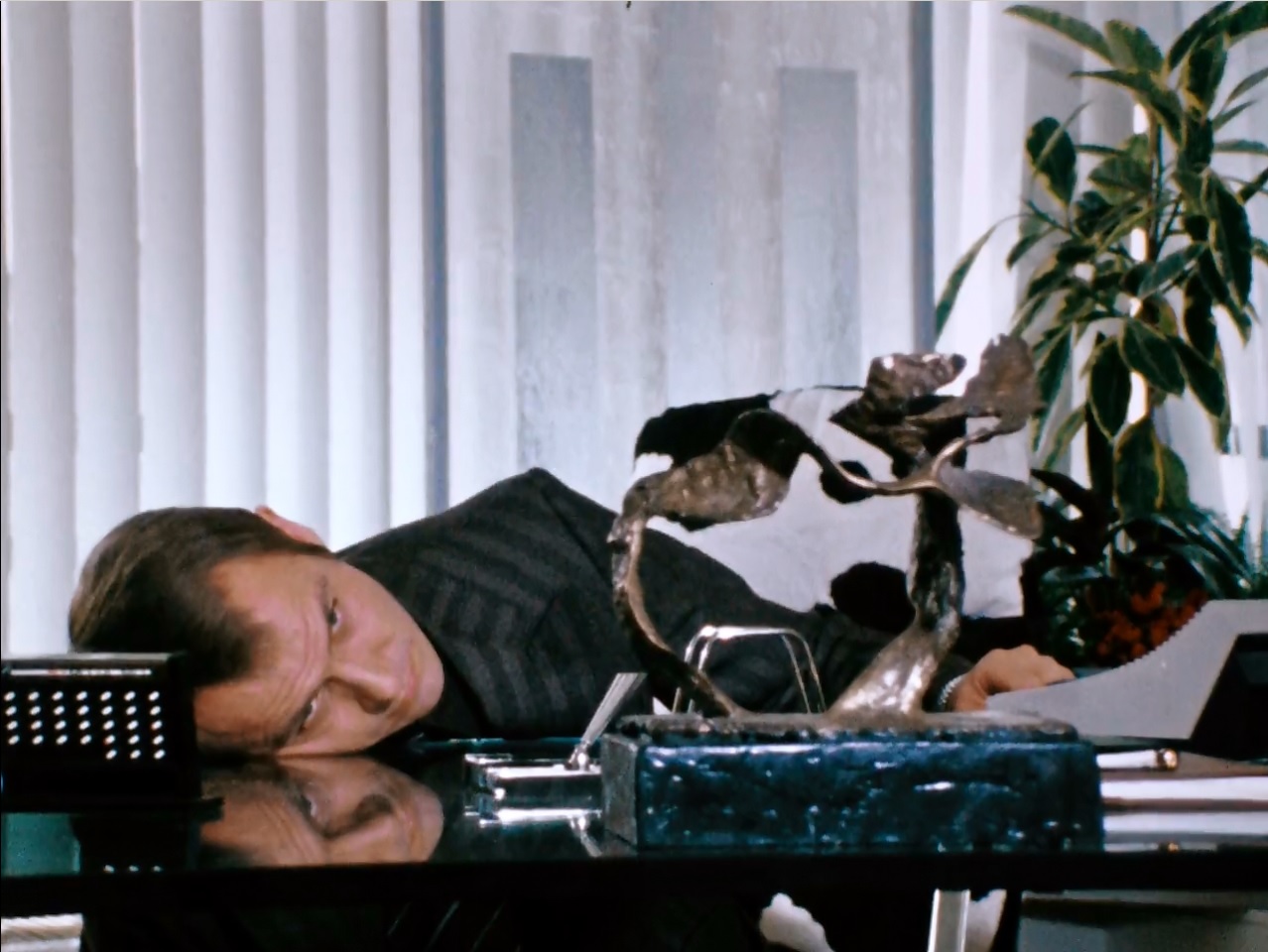
Welt Am Draht is a slow, slow movie. As said, it takes its protagonist an hour and a half of the movie to get the realisation that indeed he’s not living in any real world. That’s almost the same running time as The Thirteenth Floor its remake and it still has two hours more to run. But while it is slow, it never feels slow, because it uses its running time to throroughly consider that idea of living in a simulation, what it would mean to discover that you do so. Though it flirts with the traditional idea of that sort of revelation driving you mad, it never quite gets there. It even has a happy ending.
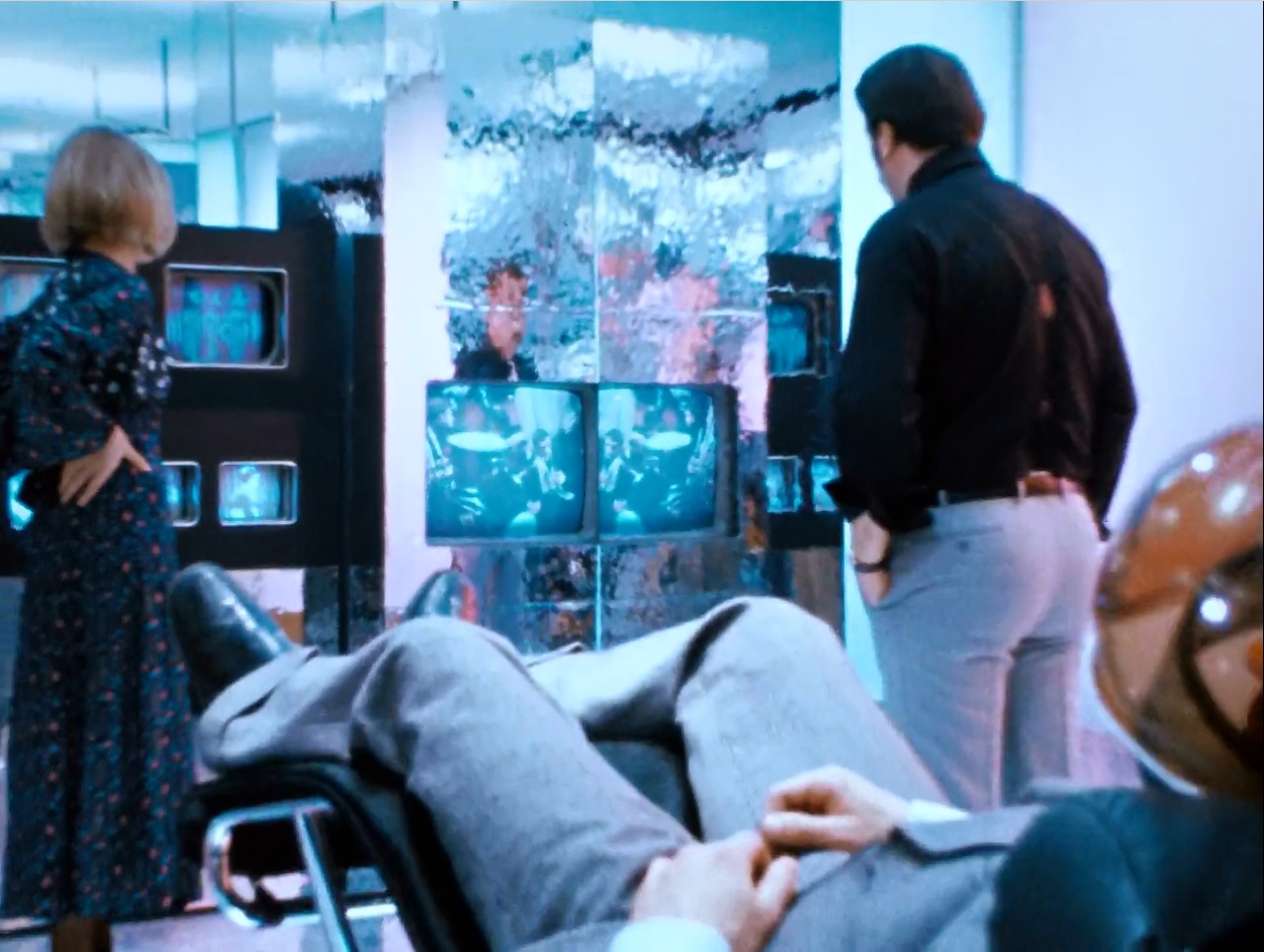
Welt Am Draht ends with the protagonist’s escape from his simulacrum to what’s presumably the real world. The problem of the simulacrum remains unsolved, its philosophical questions swapped for a more mundane love affair. With no real catharsis, this is an unsettling movie, much more so than most of the other movies mining the same vein of technopessimism and paranoia that came out at the same time. Because it’s set in a world that’s recognisably our contemporary world, the feeling of alienation brought on by the high modernist clutter in the otherwise sterile office landscape it mostly takes part in, works so well. Because it keeps the futuristic to a minimum, the distortions caused by it hit all the harder when it is introduced.
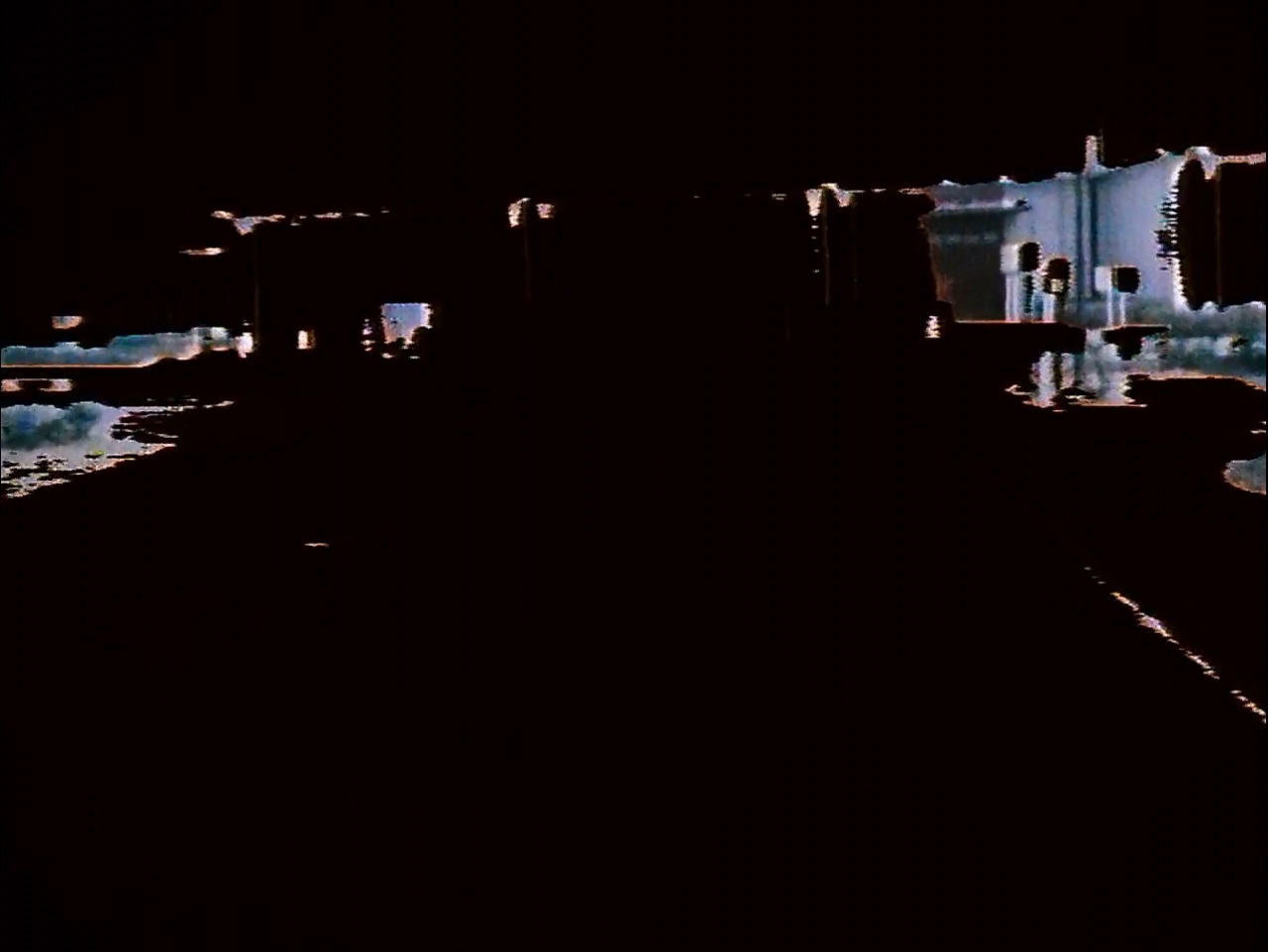
The use of mirrors and other reflecting surfaces by Fassbinder to shoot his characters in, the extraordinary stillness of the supporting cast in crowd scenes until called into action by the script, the way the protagonist constantly keeps moving, a discordant note among the rest of the cast, it all adds to this alienation. Especially those opening minutes made me uncomfortable watching, the thought kept nagging that something was wrong with this world, without ever knowing why. The repeated use of cabaret, with all its intonations of queerness, just reinforced this feeling. What it reminded me of was not so much The Matrix, but rather Videodrome, whic is similarly unsettling. It is very much a movie you would need to see if you like the latter.
No Comments